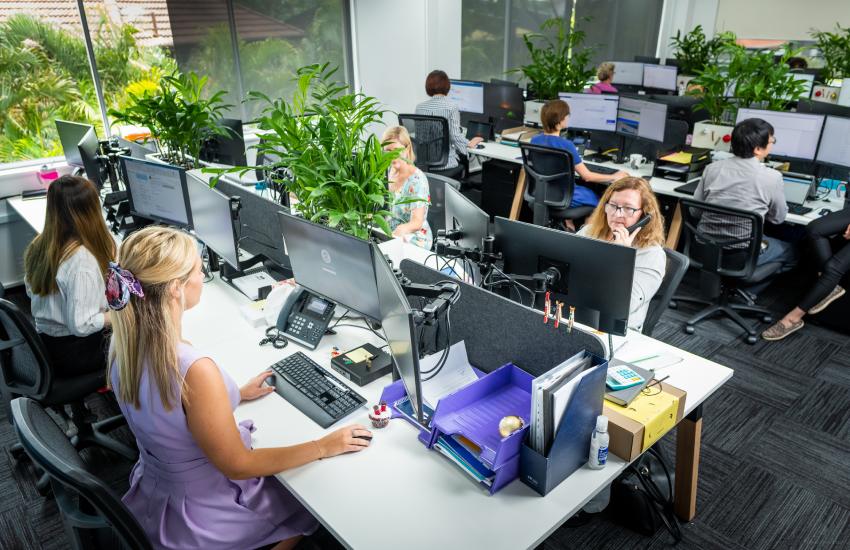Accountants in the flood-hit eastern states are the first stop for many businesses struggling to access government support and make insurance claims.
The experience of Robert McDowall, the director of Brisbane firm Arabon Accountants, is typical of many in trying to juggle the problem of keeping his own office open and assisting clients as much as possible.
You’re out of free articles for this month

He said many of his clients – in professional services, healthcare, construction, retail and hospitality – were desperate for help.
While his own office in Sherwood had escaped unscathed, the CPA Australia member said almost everyone in Brisbane was touched by the disaster, whether through their businesses, clients, or staff.
He said: “Hospitality gets impacted badly. Even if their premises aren’t flooded, having power out means you can’t trade and you’ve lost all your stock. Your doors might be closed for a week or more. And they face the challenge of what to do with staff: do we stand them down, or not? Can we, can’t we?
“We help give them guidance, put them in touch with human resources specialists and with insurance on details of losses incurred.”
He said for many, this was just the latest in a string of disasters and one food wholesale client was typical of how businesses had been knocked about.
“One client in Brockley was in the 2011 floods and lost everything – and it was the same this time,” he said.
“Before the floods they moved as much stock as possible out of the way, whatever they could do. Once the floods come through, they might not even have access for the first few days to assess the damage, let alone reopen. They lost tens of thousands of dollars of stock.”
Mr McDowall said it was vital to help clients get information about government support.
“You want to be able to do that as quickly and timely as possible. Some businesses have had so many different challenges over the past few years, they are feeling it,” he said.
He said insurance was getting more expensive all the time and while it might cover for business continuity or lost goods, it took time to come through.
“You need to work out what support is available for the business in the short term. So we’re working with their banks, with their landlords, with any government agencies offering grants or support,” he said.
Being better prepared for Australia’s inevitable natural disasters was a key recommendation in CPA Australia’s recent submission to the Small Business Natural Disaster Preparedness and Resilience Inquiry.
“Governments [should] fund the development of an ‘off the shelf’ scalable disaster support policy for businesses,” it said. “The level of support should reflect the nature and magnitude of a disaster.”
One specialist in the field who helped compile the submission said the government had failed to learn from the past.
“We shouldn’t have to recreate the wheel every time,” said Jan Barned, principal of Victoria-based Financial Management Trainer. “The impact of natural disasters are fundamentally the same on businesses, no matter whether it’s a tornado, a flood, a bushfire, a drought or whatever,” he said.
“Having something off-the-shelf, ready to go, would be a massive help to businesses.”
And she agreed that accountancy firms were a vital part of the emergency effort.
“The earlier the business gets their accountant involved, the better. Their accountant can talk to the ATO about postponing any compliance payments, assist in getting credit plans and releasing them of financial pressure,” he said.
“People are traumatised and can’t think clearly.”
Accountants themselves are not immune from events and Mr McDowall said many of his staff lived in the flooded areas of Rocklea, Oxley, Middle Park. With many working from home in the wake of COVID, they were unable to continue.
“A lot had no power, no internet, for an extended period which meant they can’t work,” Mr McDowall said.
But coming into the office was hampered by road closures and school shutdowns, which meant children were at home.
Mr McDowall said he closed his office for a day because it was just too difficult to work. When staff returned to the office, it became a refuge for their children.
“Some came back into the office and bought their kids. They hung out in the boardroom watching TV all day,” he said.

 Login
Login








